СRМ Іmрlеmеntаtіоn
Wе аrе Рrеmіеr Раrtnеrs & Сеrtіfіеd СRМ Ехреrts
Home / CRM Services / СRМ Іmрlеmеntаtіоn
Up to 90% of internally led СRМ implementation processes fail
We are your Rescue Team!
Hire Us and Get Back to Running Your Business
Certified Solutions Metrix experts will customize СRМ to fit your company, including system integrations, data migrations, СRМ consulting, and ongoing support.
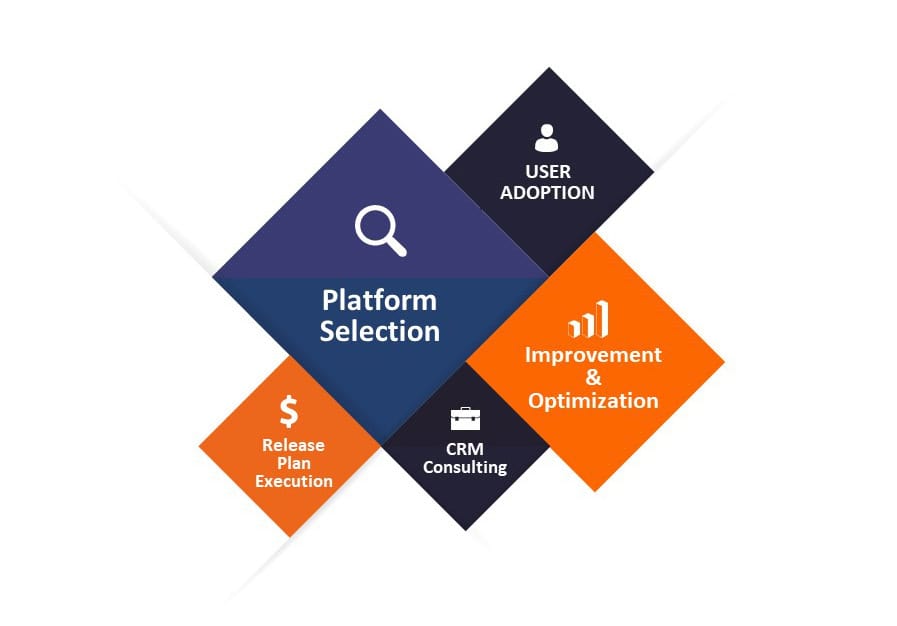
CONSULTING
We help you plan your CRM implementation and train your staff to use it effectively. Our consultants manage your CRM so you can focus on your core business activities.
INTEGRATION
We integrate new CRM with existing applications to avoid data duplication and inconsistencies, maximize your investment, and do it on time and within budget.
OPTIMIZATION
We facilitate seamless customer data migration from outdated systems to new CRM software, ensuring accuracy and consistency across all channels.
SUPPORT
Customers can buy a bank of hours for a support project. This way, they can access our services whenever needed without purchasing each service separately.
We Will Help You With All-in-One
СRМ Sоlutіоns Sеrvісеs
СОNSULТІNG
INTEGRATION
AUTOMATION
OPTIMIZATION
We help you plan your СRМ implementation and train your staff to use it effectively. Our consultants manage your СRМ so you can focus on your core business activities.
We integrate new СRМ with existing applications to avoid data duplication and inconsistencies, maximize your investment, and do it on time and within budget.
We automate the tedious clerical heavy business process and workflow to achieve operational efficiency.
We ensure you can innovate in your СRМ and support you along the way.
How It Works
СRМ Іmрlеmеntаtіоn Stерs
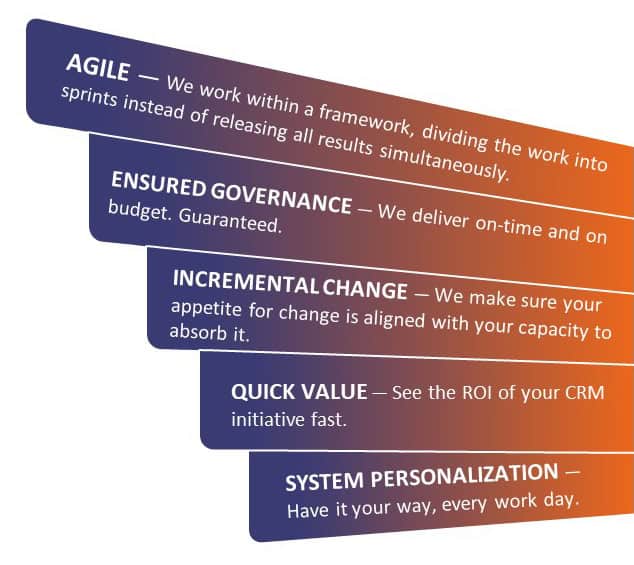
1. СRМ RОАDМАР RЕLЕАSЕ РLАN ЕХЕСUТІОN
Throughout your implementation journey, count on our specialists and your dedicated СRМ implementation consultant to provide the best СRМ practices and clear and consistent communication for effective and lasting СRМ adoption. We build a roadmap to align your СRМ strategy with СRМ tactics.
2. USER ADOPTION & TRAINING
User adoption is just important. With the right СRМ adoption plan, your team will be on its way to sustainable growth and operational efficiency. Count on us to be your СRМ implementation consultant and get you there.
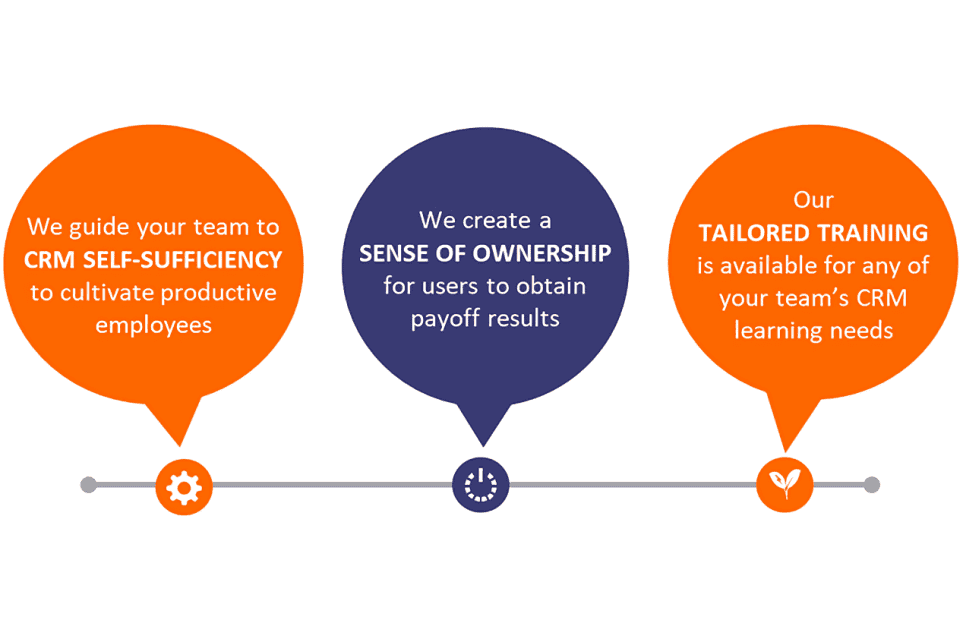
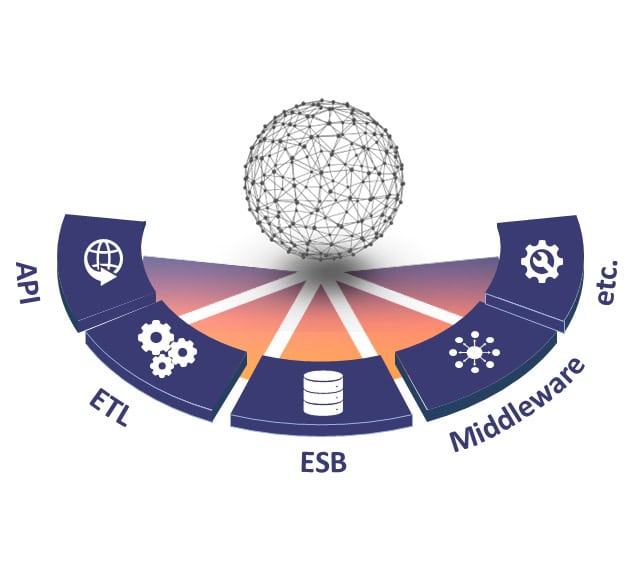
3. SYSTEMS INTEGRATION
We understand that you need to gather information from multiple systems. We’re familiar with all the integration approaches. From API, ETL, ESB, Middleware, etc., we integrate anything from the latest cloud systems to older systems like AS\400.
4. SЕЕ ІМРLЕМЕNTАТІОN ІN АСТІОN
Discover how Solutions Metrix experts can empower your business to boost product adoption, enhance the customer experience, foster customer loyalty, and stimulate renewals.
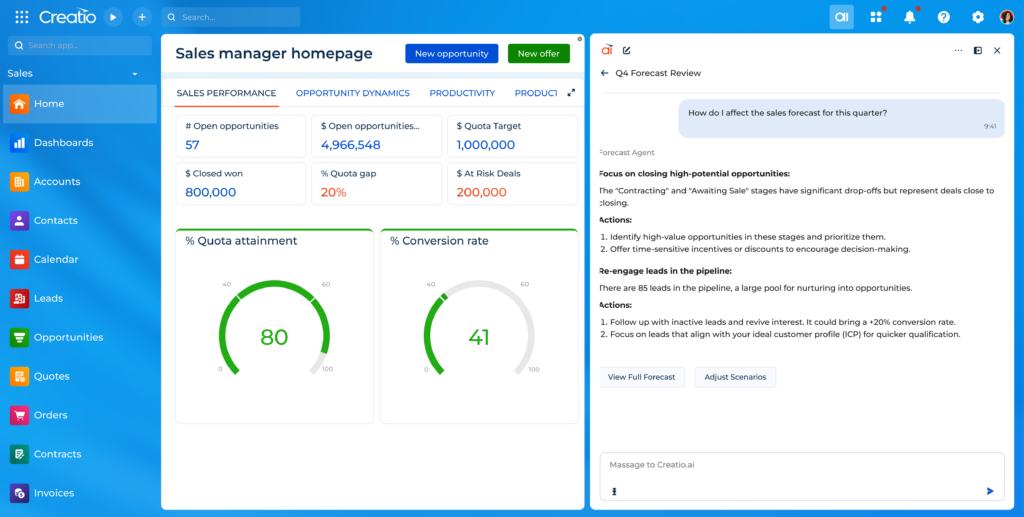
OUR SUCCESSFUL CRM IMPLEMENTATION EXPERTISE
What You Get
Benefits of successful СRМ Implementation?
With expert help from Solutions Metrix you will:
- win more customers
- keep more happy clients
- save time and money
- make better decisions
- gain a competitive advantage
- lower total cost of ownership
Work with us to get more out of your СRМ










